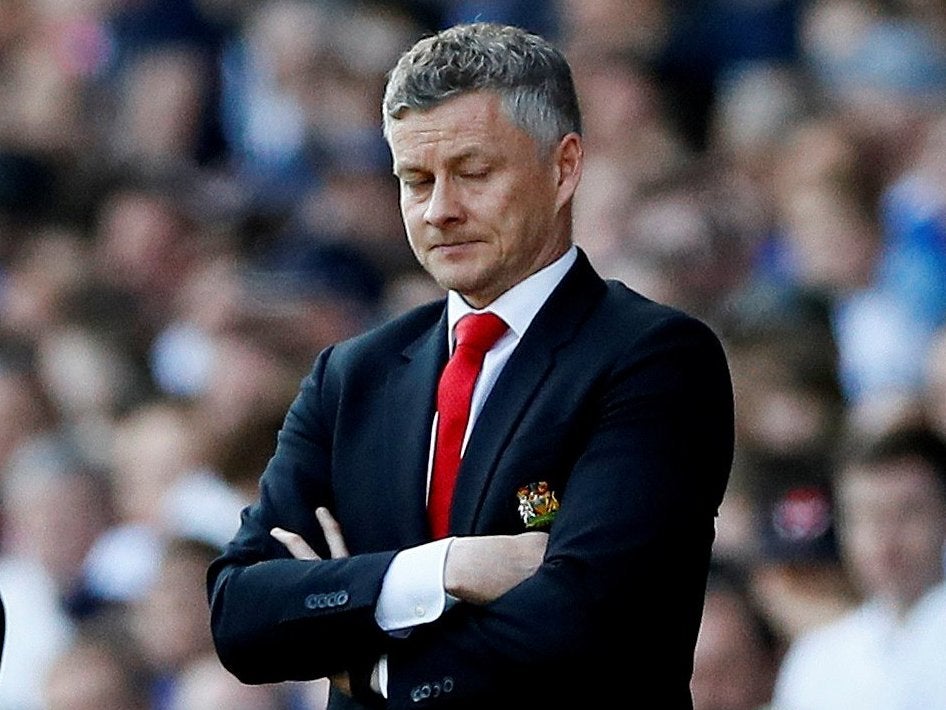What's gone wrong at Manchester United? Inside the dressing room and what Ole Gunnar Solskjaer must fix
Solskjaer's inspired start was always too good to be true but what has followed is a lot more complicated to explain

Your support helps us to tell the story
From reproductive rights to climate change to Big Tech, The Independent is on the ground when the story is developing. Whether it's investigating the financials of Elon Musk's pro-Trump PAC or producing our latest documentary, 'The A Word', which shines a light on the American women fighting for reproductive rights, we know how important it is to parse out the facts from the messaging.
At such a critical moment in US history, we need reporters on the ground. Your donation allows us to keep sending journalists to speak to both sides of the story.
The Independent is trusted by Americans across the entire political spectrum. And unlike many other quality news outlets, we choose not to lock Americans out of our reporting and analysis with paywalls. We believe quality journalism should be available to everyone, paid for by those who can afford it.
Your support makes all the difference.It is not just Manchester United’s results that have gone from extreme to extreme, but also the dressing room. The two, inevitably, are interlinked.
Just as one of the best winning runs in the club’s history has given way to one of the worst ever losing streaks, a spirit of unity and positivity has given way to one of doubt, anxiety and general disgruntlement.
The question is how. How has it all gone so badly so quickly? How has the job become so massive again?
If the story of Ole Gunnar Solskjaer’s stunning initial surge was the little things like getting the players to wear suits that added up to a whole lot, what is the story of this drastic downturn? It is about so much more than just making him the permanent boss.
The first and most crucial point is that the early form was just never going to last. It was simply too good to be true, and unsustainable. The signs were there in some of the wins, from Tottenham Hotspur to the more recent tipping point of the undeserved home victory over Watford.
But the wonder is what has happened to make it all so much worse.
It is by now a combination of factors, with the poorer mood from poorer results naturally compounding problems, but Solskjaer feels there are two fundamental reasons. He has realised a lot of the players aren’t good enough, and a lot of their fitness levels aren’t good enough.
The first-team staff now feel that the players weren’t physically conditioned for the intense football that was so integral to the good form in his first few months, and that they are now paying the price. They just can't play the same football.
Some put that down to the pre-season under Jose Mourinho, but others are now wondering about the potential effects of what they describe as “a second pre-season” in Dubai a few weeks ago.
One source incredulously asked “what on earth were they doing?”
For Solskjaer’s part, that is not exactly a widespread view around the team, but it has fed into growing doubts about a few elements of his management.
Some players did have doubts about his strengths when he first came in. While those doubts were naturally washed away in the freewheeling euphoria of the first three months - pun only partially intended - they have come back with force.
Some are now wondering about his tactical acumen, with one source describing it as “his biggest problem”.

All of this of course must be put into the context that Solskjaer himself now has plenty of doubts over many of the players. It is understood that the last few weeks have seen a lot them realise their futures are under question. Even a signing as recent and expensive as Romelu Lukaku could be facing the exit, with Solskjaer open to such a sale.
There is then the issue that the Spanish speaking players - a hugely influential dressing-room group comprised of Ander Herrera, Eric Bailly, Marcos Rojo, Antonio Valencia, David De Gea - is set to be broken up. This has naturally altered the chemistry of the squad.
A deeper issue - and fundamental challenge - is that the contracts of players United want to get rid of makes them very difficult to offload, while so many players they want to keep are looking elsewhere.
Paul Pogba is now said by some to be “very keen to leave” for Real Madrid, De Gea is not getting the wage he wants, while Marcus Rashford would naturally greatly consider any concrete offer from Barcelona. One teammate has complained to friends about how Rashford is not quite the humble figure he used to be.
The bottom line with all of this is that it is no longer the singularly focused dressing room that Solskjaer had in the wake of the optimism generated by his initial appointment, with the situations of some naturally making them more prone to disgruntlement at certain decisions.
This is why some would make it known they are doubting his tactics, even if there is still a fair debate to be had there.
So, Solskjaer has a squad short of fitness, short of quality and short of confidence. This is partly why they are short of form, but the extent of the drop-off puts at least some of the blame at his feet.
There is a lot to sort out, and an awful lot to untangle.
Join our commenting forum
Join thought-provoking conversations, follow other Independent readers and see their replies
Comments